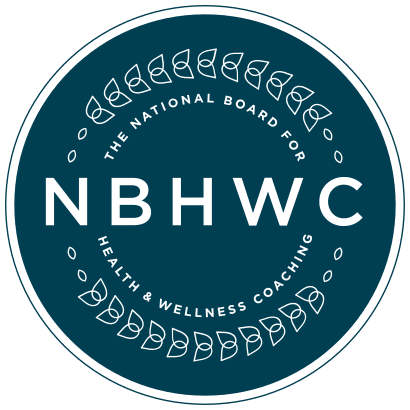You’ve spent years building a life rooted in what matters to you—family, work, community, or your own personal well-being. Now, retirement opens the door to something new. For many, it’s a chance to focus on work that feels more meaningful, more flexible, and more connected to your values.
Health coaching offers a way to align your work with what matters most to you in this next phase of life.
This growing field blends personal connection, service, and lifelong learning into a career that supports others while also nourishing your own well-being. It’s especially well-suited to those who want to stay active, keep learning and growing, and earn income doing something that makes a real difference.
Whether you’re looking for an inspiring part-time role, a flexible second career, or a way to share your experience and passion for wellness, health coaching provides a purposeful path forward.

How Health Coaching Can Add Meaning to Retirement
Retirement doesn’t have to mean slowing down. For some, it’s a chance to shift into work that complements your life, not consumes it. Health coaching is both flexible and rewarding, offering a way to stay engaged, support others, and earn income on your own terms.
Coaching attracts people in their 50s, 60s, and beyond who want more control over their time. They might choose to work part-time, coach seasonally, or meet with clients virtually while traveling or living in a rural area. Whether you want more time for family, space to travel, or a lighter workload, your work as a coach can adapt to fit your lifestyle.
It’s also deeply fulfilling. Retired coaches often say this work helps them stay energized, connected, and committed to their own health. It’s not about hustling to build a high-pressure business. It’s about doing something meaningful with the time and energy you have now.

What Does A Health Coach Actually Do?
Most people already have an idea of what they should be doing to support their health—more sleep, less stress, healthier food choices. The real challenge is turning that knowledge into habits that stick.
Health coaches help clients make sustainable lifestyle changes in areas like nutrition, movement, sleep, stress, and even mindset. As a coach, you might support someone in building a more consistent exercise routine, adjusting to a new food plan from their doctor, or setting healthier boundaries around screen time and rest.
Health coaches don’t diagnose, prescribe, or treat. Instead, they guide a collaborative, client-led process that’s grounded in the science of behavior change. Through listening, asking thoughtful questions, and providing nonjudgmental support, coaches help clients clarify their goals and build the confidence to follow through.
If you’re someone who values empathy, curiosity, and practical tools for growth, you might feel right at home in the role of health coach.
Learn more about health coaching here.
The Benefits of Health Coaching in Retirement
In retirement, you can reimagine how you spend your time and energy, with more freedom to choose what truly matters to you. Becoming a health coach at this stage of life can be a natural fit if you’re drawn to work that keeps you engaged, learning, and using your experience to make an impact.
Here’s what makes health coaching especially rewarding in retirement:
Purpose
Support others in creating healthier, more fulfilling lives while staying true to your own values. Coaching offers a chance to share your insight in ways that make a difference.

Flexibility
Set your own pace, choose your hours, and take on only what fits your life. A health coach’s schedule can accommodate travel, caregiving, or other commitments, without pressure to grow beyond your goals.

Connection
Stay mentally and socially engaged through meaningful relationships with clients and peers who share your passion for well-being. Many coaches say the sense of community is one of the most fulfilling parts of the work.

In retirement, coaching offers a way to give back—not by having all the answers, but by helping others uncover their own. It’s a kind of support that’s both powerful and deeply human, and one that you may be especially equipped to offer later in life.
How Health Coaches Make Money (Even in Semi-Retirement)
Health coaching can be a flexible source of income that fits the retirement lifestyle you’re creating. You might choose to work with a few private clients each week, partner with healthcare providers, lead group programs, or offer virtual workshops. Some coaches also branch into related work like teaching, writing, or consulting, often combining coaching with skills from their previous careers.
Not sure which approach is for you? Check out the Health Coaching Career Guide here.

Most practices grow gradually. It can take time to find your niche and build a client base, but for retired coaches, that slower pace can be a feature, not a flaw. Without the pressure to immediately generate a full-time income, you can grow at your own pace and focus on work that feels meaningful and aligned.
Your background and existing network can play an important role in growing your practice, too. Whether you come from healthcare, education, business, or the arts—or you’re just part of a community where coaching could make a difference—the relationships you’ve built over the years can become a natural source of referrals, clients, and support.

And you don’t have to figure it out alone. The right health coach training program will provide business guidance, mentorship, and a supportive network of alumni to help you get started with clarity and confidence.
How to Get Trained and Certified As A Health Coach
If you’re thinking about health coaching as part of your retirement plan, the first step is to choose a training program that aligns with your goals and lifestyle.
A good place to start is by looking for a certification program that’s approved by the National Board for Health & Wellness Coaching (NBHWC). This credential is widely recognized as the gold standard and can lead to more opportunities, whether you want to work independently or partner with a healthcare provider.
From there, consider what kind of learning environment and special focus areas work best for you. Most programs are designed to be flexible and accessible, even for those balancing other commitments. You’ll study the science of behavior change, develop coaching skills, and learn how to support clients ethically and effectively. You’ll also cover the fundamentals of healthy living and receive at least some hands-on coaching practice to help you feel confident and prepared.

With the right training, you’ll walk away with more than a new credential. You’ll have a purposeful path forward and the tools to make an impact in this next stage of life.
Retirement doesn’t have to mean stepping back. It can be the moment you step into work that truly reflects who you are and what you care about. As a health coach, you’ll stay active and connected while supporting others in improving their lives.
If you’re ready for a new chapter that combines meaning with flexibility, health coaching might be the right fit for you. Learn more and take the next step here.
Our Latest Blogs
-

Protein 101: The Health Coach’s Guide
Read Full Article: Protein 101: The Health Coach’s Guide -

Women’s Health and the Vaginal Microbiome: A Probiotic Breakthrough
Read Full Article: Women’s Health and the Vaginal Microbiome: A Probiotic Breakthrough -

Forever Chemicals 101: What Health Coaches Need To Know
Read Full Article: Forever Chemicals 101: What Health Coaches Need To Know

